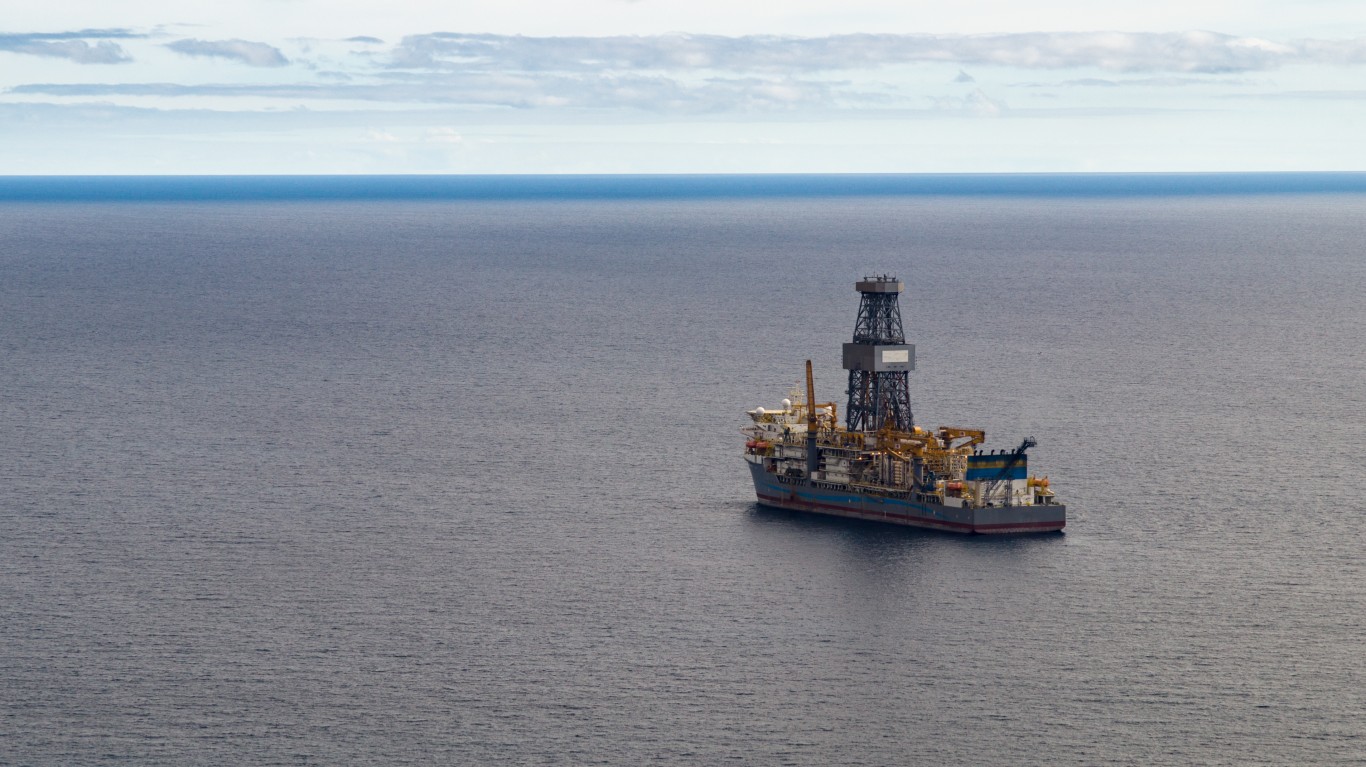Investing
Transocean Snags a Big Sell Rating as Earnings Recovery Is Pushed Out

Published:

Transocean Ltd. (NYSE: RIG) has been no stranger to negative performance. Its shares are down 50% from a year ago, and that is after losing one-third of its value just since the end of 2019. Now Transocean is getting another Sell rating from an analyst.
David Coleman of the independent research firm Argus downgraded Transocean from Hold on Wednesday. This comes after the recent earnings report continued to show losses and concerns about challenging offshore drilling conditions, despite the company having a relatively new fleet.
Coleman now also sees even wider than previously expected losses in 2020. The official Argus estimate was widened out to −$0.77 per share from the prior −$0.56 target. On top of disappointing earnings and metrics of its own, lower oil prices are also not helping the situation. The official 2021 estimate from Argus was set at −$0.35 per share, and Coleman now does not see Transocean returning to profitability until 2023, at the earliest.
Transocean reported with its latest earnings this week that the company’s contract backlog was $10.2 billion as of the February 2020 Fleet Status Report. Still, its fourth-quarter 2019 adjusted net loss of $263 million translated to −$0.43 per share and that its cash flows provided by operating activities of $147 million were up from $91 million in the prior quarter.
The Argus report said:
We remain concerned about challenging conditions in the offshore drilling market despite the company’s relatively new fleet. Over the last year, the company’s mobile offshore rig count has declined from 61 to 45, with two rigs under construction. Transocean has also seen its balance sheet deteriorate despite proceeds from the sale or scrapping of older vessels. The weak balance sheet has in turn led to credit downgrades, even as the company has worked to strengthen its financial position through the sale of additional rigs. Transocean shares have been volatile over the last several years, rising nearly 40% before giving back all of those gains in December 2018. The shares partly recovered from their December low in the first four months of 2019, but have declined since that time. We see limited nearterm upside based on our loss estimates for 2020 and 2021 and believe that a SELL rating is warranted.
As far as the metrics driving the company, they might sound positive but they are not strong enough to reflect slower gross domestic product growth and lower oil prices. Along with earnings, Argus pointed out several metrics:
- rig utilization was 61% in Q4, up from 58% in the prior quarter but down from 62% a year earlier;
- average fleet revenue efficiency was 96% in Q4;
- average daily revenue was higher year-over-year for both midwater floaters and harsh environment floaters, but lower for ultra-deepwater floaters;
- and average daily rig revenue was $317,700 in Q4 $293,100 a year earlier.
While Argus sees more weakness and a push-out of profitability, Jeremy Thigpen, Transocean’s CEO, was trying to convey that progress was made in 2019. His own view was that the company has now started an anticipated recovery in offshore drilling. Thigpen also noted that the company’s fleet improved for the first time in over five years, while day-rates had risen 75% for the company’s ultra-deepwater rigs. The report did note a potential drag on the economics from the coronavirus, but it also pointed to a year-over-year increase in contracting activity, utilization and day-rates. Thigpen’s said along with earnings:
As utilization across our floating fleet improved for the first time in over five years, and dayrates for high‑specification ultra‑deepwater assets increased 75% over the course of the year, we believe that 2019 marked the beginning of the much-anticipated recovery in the offshore drilling industry… As a direct result of our strong performance in 2019, we generated almost $1 billion in adjusted EBITDA, which, when combined with the multiple financing transactions consummated throughout the year, further bolstered our liquidity position. This liquidity, coupled with our industry‑leading $10.2 billion backlog, provides us the financial stability to continue to invest in our people, the maintenance of our assets, and new technologies that will further differentiate us in the eyes of our customers and shareholders.
Transocean stock traded at $4.52 ahead of earnings, but Tuesday’s reaction took shares down to $4.41, and on Wednesday they were down another 1.2% to $4.37. Transocean shares have a 52-week trading range of $3.76 to $9.79, and the current market cap is near $2.7 billion.
The last few years made people forget how much banks and CD’s can pay. Meanwhile, interest rates have spiked and many can afford to pay you much more, but most are keeping yields low and hoping you won’t notice.
But there is good news. To win qualified customers, some accounts are paying almost 10x the national average! That’s an incredible way to keep your money safe and earn more at the same time. Our top pick for high yield savings accounts includes other benefits as well. You can earn up to 3.80% with a Checking & Savings Account today Sign up and get up to $300 with direct deposit. No account fees. FDIC Insured.
Click here to see how much more you could be earning on your savings today. It takes just a few minutes to open an account to make your money work for you.
Thank you for reading! Have some feedback for us?
Contact the 24/7 Wall St. editorial team.